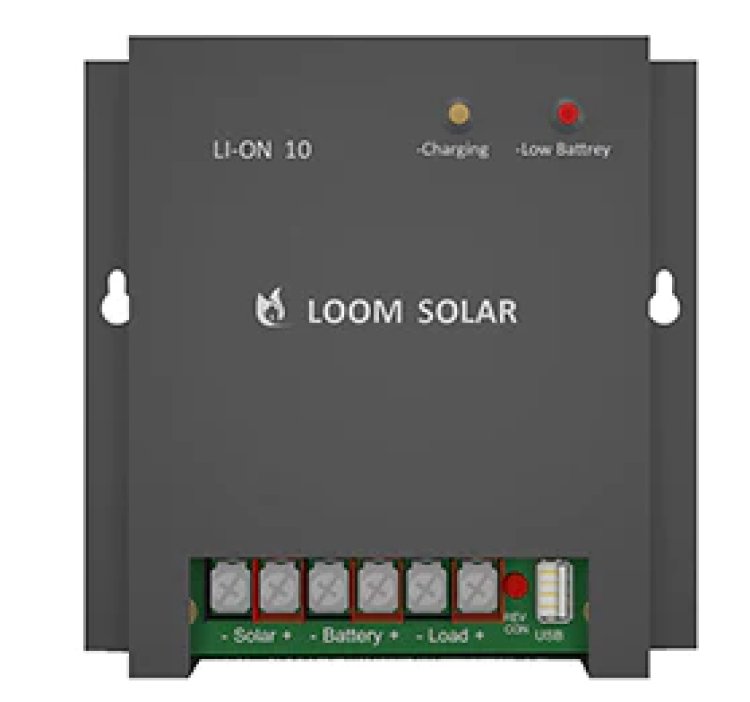What is the difference between Solar Charge Controller & Solar Inverter?
Solar charge controllers and solar inverters are critical components in solar power systems...
Share this Post to earn Money ( Upto ₹100 per 1000 Views )

Solar charge controllers and solar inverters are critical components in solar power systems, serving distinct roles.

What is a Solar Charge Controller?
It manages the flow of electricity from solar panels to batteries, preventing overcharging and optimizing charging rates. This safeguards battery life and is vital for off-grid and hybrid solar setups.
Benefits of Solar Charge Controller:
Cost-Efficiency: It enables the conversion of a standard inverter battery into a solar-compatible system at a lower cost.
Versatility: Users can harness 24V solar panels with a single 12V inverter battery, optimizing resource use.
Limitations of Solar Charge Controller:
Cost Proportion: The controller’s cost can be relatively high, impacting overall system expenses.
Technical Expertise: Installation may require technical knowledge, emphasizing the importance of professional setup.
What is a Solar Inverter?
Solar inverter converts DC solar power into usable AC electricity for homes, businesses, and the grid, promoting efficient solar energy utilization.
Benefits of Solar Inverter:
Integrated Charge Control: Often includes built-in charge controllers, simplifying setup and reducing costs.
Voltage Options: Available in various voltages and capacities, catering to diverse energy needs.
Optimal Load Management: Efficiently powers up to 80% of connected loads, ensuring versatile energy usage.
Solar Capacity Utilization: Allows matching solar panel capacity to the inverter, optimizing energy use.
Compatibility: Supports various panel configurations and offers a flexible price range.
Limitations of Solar Inverter:
Limited Warranty: Off-grid solar inverters typically have shorter warranties than expected system lifespans.
Capacity Utilization: Operating near maximum capacity for prolonged periods can reduce lifespan and performance.
In conclusion, solar charge controller guarantee efficient battery charging and protection, whereas solar inverters transform DC solar energy into usable AC power. Together, these components facilitate the dependable and optimized use of solar energy, enhancing the efficiency, durability, and eco-friendliness of solar power systems.






